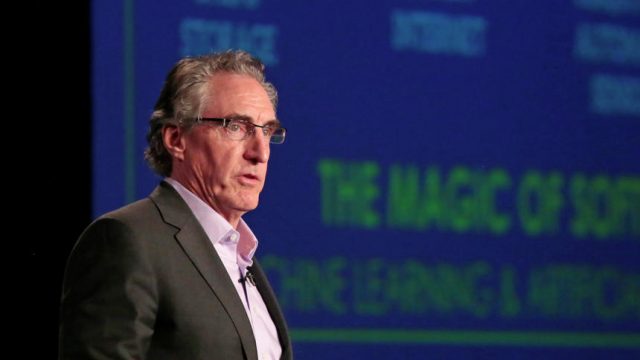Burgum’s Budget Makes Spending of Oil Tax Revenues More Transparent

I’m a fan of Governor Doug Burgum’s executive budget. It’s not perfect, but it’s very good, not just for its restrained (and at times even innovative) spending but because of the way it’s structured.
Case in point, some time back during John Hoeven’s tenure as governor the executive branch (with an assist from lawmakers) figured out they could hide spending increases by appropriating directly from the state’s special funds.
These are the “buckets” you’ve probably heard state leaders talk about. Various funds, like the SIIF and even the Legacy Fund, which accumulate revenues from sources like the oil extraction and production taxes. Traditionally when appropriations were made from these “buckets” the money was first transferred into the state’s general fund and then appropriated. Sort of like you or I transferring money from our savings accounts into our checking accounts so we can make a big purchase.
By doing things this way, general fund spending represented an accounting of all spending. By appropriating directly from the special funds, the politicians could spend big while keeping the increases invisible from the perspective of the general fund.
What Burgum’s budget does is transfer oil revenues into the general fund for appropriations, but some lawmakers are balking:
State Rep. Keith Kempenich, R-Bowman, who chairs the interim Legacy and Budget Stabilization Fund Advisory Board, said the state’s commodity-based economy is key to consider in budgeting projections. Sagging oil and crop prices led to the revenue shortfalls the state had to patch two years ago.
With that, Kempenich also expressed concern with Burgum’s proposal to allocate $1 billion from oil tax revenue directly to the 2019-21 general fund. Burgum’s budget plan would bypass transfers of oil tax revenue to “provide a clearer picture” of funding sources, according to the governor’s office.
The governor’s proposal may receive pushback from legislators, according to Kempenich.
“I don’t think there’s going to be a lot of people that are going to sign up to have a permanent-type transfer of $1 billion oil money that goes into the general fund,” Kempenich said.
Office of Management and Budget Director Joe Morrissette said the governor’s proposal would show the true amount oil tax revenue to the general fund, rather than “a combination” of direct allocations and transfers from other places, such as $431 million transferred from the SIIF and the Tax Relief Fund this biennium.
I’m not married to the way Burgum has transferred this money, but I do believe direct appropriations from the state’s special funds need to end.
The money the state spends should be transferred to the general fund first, and then appropriated. The mishmash of methods we have now, as Director Morrissette points out, is utterly opaque and obscures profligacy that might otherwise be more visible to the public.




